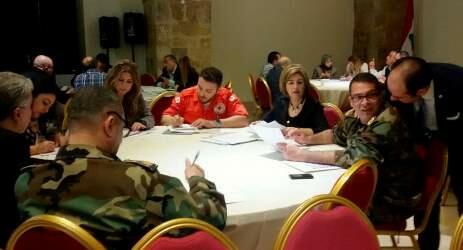
“We need to improve the laws to improve the lives of our people,” noted Major General Mohammad Kheyr, Secretary General of Lebanon’s Supreme Defence Council and Chairman of the Higher Relief Council. Indeed, “humanitarian needs in Lebanon are increasing,” observed LRC Secretary-General Georges Kettaneh. From the massive influx of Syrian refugees to massive snowstorms and even a national garbage collection crisis, Lebanon is no stranger to emergency management.
Yet, despite many improvements in recent years, the country’s legal framework has yet to fully integrate disaster risk reduction and the rules for the management of international relief remain sketchy. “Although often unintentional - bureaucracy increases the costs and reduces the efficiency of humanitarian aid – especially in the case of international cooperation,” pointed out Mr. Kattaneh.
To strengthen legal frameworks for disaster risk management, a select group of experts were trained on legal issues in disaster risk management and tools for the drafting of disaster laws. Throughout the workshop, facilitated by Mr. Youssef Sfeir, LRC disaster law expert, participants were equipped with hands on knowledge of best practices in disaster law and exchanged experiences and ideas on how to remove current obstacles.
Nathalie Zarour, Director of the Disaster Management Unit in the Office of the Prime Minister, pointed out that Lebanon has been actively developing its legal and institutional framework in line with the Hyogo and Sendai Frameworks for action. Ms Zarour indicated that as a way forward, there should be continued insistence on the implementation of existing laws, especially with reference to land use and awareness raising, in addition to the adoption of a draft DRM law that is currently being deliberated in the Lebanese Parliament.